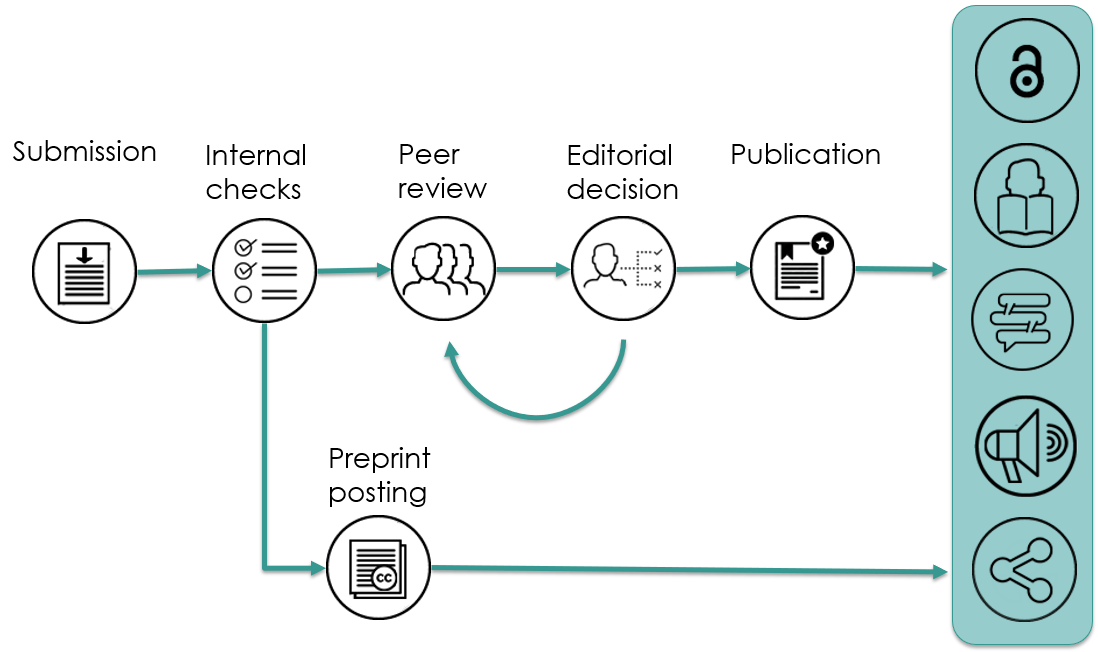Written by Lindsay Morton Over 4 years: 74k+ eligible articles. Nearly 85k signed reviews. More than 30k published peer review history packages…
Power to the Preprint
Preprints are here!!! Starting today authors submitting their manuscript to most PLOS journals* can also choose to post their article on bioRxiv, Cold Spring Harbor Laboratory’s preprint server for the life sciences. This is an important development for both PLOS, for bioRxiv, for the authors we serve, and for the life sciences. For PLOS, it enables us to achieve a long-standing aspect of our vision to make research more quickly available to enable discovery and reuse. For bioRxiv, this development will augment the server’s already rapidly climbing manuscript submission rate. And authors will gain the opportunity of sharing their work before peer review on a trusted platform.
“Collaborating with bioRxiv is part of a much bigger strategy for PLOS moving forward, one in which we’ll renew our roots of being a catalytic open publisher” said Alison Mudditt, CEO of PLOS. “To accelerate innovation, we’ll often act in partnership with others in the community, which will move us closer to our vision of how scientific communication should work.”
“We warmly welcome the further integration of PLOS journals with bioRxiv,” said John Inglis, co-founder of bioRxiv. “The server’s goal is the acceleration of research and providing unrestricted access to manuscripts before they enter an often lengthy process of peer review is one of several ways bioRxiv is delivering on its promise.”
So what are preprints exactly?
A preprint is an openly available scientific manuscript that an author uploads to a public server like bioRxiv prior to peer review. The preprint contains data and methodologies and is typically the same manuscript that is submitted to a journal.
Why are preprints important?
Well, for starters, early sharing of ideas can lead to new discoveries and collaboration, and early feedback can help improve your manuscript. We are committed to putting your science first. By allowing a submission to be posted on bioRxiv, authors accelerate the dissemination of their work and invite commentary by a broader community, which PLOS editors may evaluate as part of peer review.
How will it work? This graphic is a visual representation:
In short, PLOS will perform initial manuscript screening compatible with bioRxiv standards, covering appropriate scope and article type, plagiarism detection, and other basic ethical and technical criteria. Articles will then post to the bioRxiv server and be freely accessible online. Authors must choose to opt-in to this preprint process when they submit papers to PLOS.
When sharing this post on Facebook or Twitter please use the hashtag #powertothepreprint to help increase visibility and awareness for preprints. Publish with PLOS and post your preprint on bioRxiv and let’s keep science open, and accessible, together.
*PLOS Medicine continues to permit authors to post preprints of their research, but given particular issues related to research in human health, will not initially be offering transfer of submitted manuscripts to bioRxiv. PLOS Biology also continues to encourage authors to post preprints and will enable this automated preprint posting service to submitting authors in a few months.

